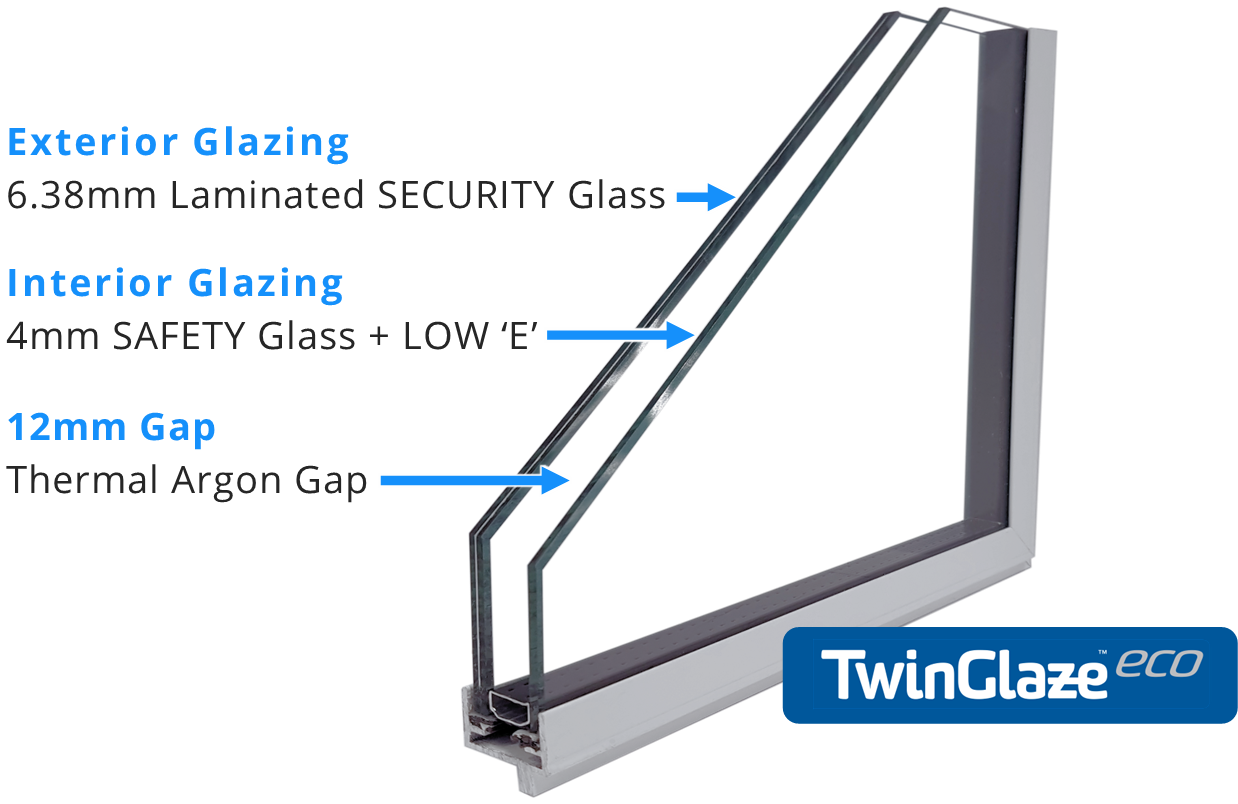All Categories
Featured
Table of Contents
Glazing in Mirrabooka Western Australia
That window can transmit more solar heat in winter season than in summer season. A west-facing window on a summertime's afternoon has an angle of incidence from near 0 as much as 30 with a large effective location of solar radiation. A north-facing window, in summer, has a high angle of incidence and a low efficient area of solar radiation, so can transfer less heat than a west-facing one.

You can rapidly and quickly enhance the thermal performance of your house by changing your windows. There are thousands of types of glass and frames to select from.
Twinglaze® Double Glaze Specification Act - Vic in Mosman Park WA
There are many different kinds of glass items to select from. Single glazing utilizes a single pane of glass. Single glazing with clear glass is not very effective when it concerns heat loss or gain. To improve performance, you can use single glazing with a more energy-efficient kind of glass such as low emissivity (low-e) glass.
Numerous layers can be put together with sealed cavities between each sheet of glass. IGUs generally use better energy efficiency than single glazing, because they transfer less energy. However, the energy efficiency of IGUs likewise depends on: the homes of each layer of glass. Various glass types (for example, clear and low-e glass) can be assembled in an IGU.
Which Type Of Glass Is Best For Energy Efficiency? - A&l Windows in Lynwood WA

IGU cavities can be filled with air or a more inert, low-conductivity gas such as argon the width of the cavity. Cavity thickness is generally 6 to 18mm. Broader cavities provide lower (much better) U values, with 12mm normally accepted as the preferred space how well the cavity is sealed. Cavities must be dry and well sealed to avoid moisture getting in.
If argon is set up to the cavity in location of air, moisture is dependably omitted the level of desiccant (drying representative). The spacer (metal or polymer strip) that separates the glass layers includes a desiccant to take in any wetness. Insufficient desiccant may trigger moisture to condense on the glass surface area in cold conditions, reducing thermal efficiency.
Solace Creations: Home in Roleystone Western Australia
IGUs can deliver much better energy performance for all environments, particularly in heated and air-conditioned houses. Cross-section detail of single, double and triple-glazing units Low emissivity glass (commonly referred to as low-e glass) reduces heat transfer. Low-e glass may be either high or low transmission: High transmission low-e glass has a coating that enables daytime from the sun to pass into your house to accomplish excellent solar heat gain, but decreases the amount of the long wavelength infrared heat that can get away back through the window.
Low-e glass has either a pyrolytic coating or a vacuum-deposited thin movie metal coating. Pyrolytic coverings are long lasting and can be utilized for any glazing; vacuum-deposited finishes are soft and are only utilized within IGUs. Low-e coatings can considerably improve both U worth and SHGC; nevertheless, they should be used correctly or they will either degrade or fail to carry out as needed.
4 Benefits Of Double Glazed Windows In The Summer in East Perth Western Australia
Low-e finishings can be used in combination with clear, toned or reflective glass. Low-e finishes on glazing can minimize heat transfer where required Photo: Department of Market, Science, Energy and Resources Toned glass has actually colouring additives included throughout manufacture. It is readily available in various colours, typically bronze, grey, blue and green.
Table of Contents
Latest Posts
How Double Glazing Can Help Keep Your Home Cool In ... in WA
Why You Need Secondary Glazing In The Summer in Cooloongu WA
Double Glazing Vs Triple Glazing: Which Is Better? in Quinns Rocks Perth
More
Latest Posts
How Double Glazing Can Help Keep Your Home Cool In ... in WA
Why You Need Secondary Glazing In The Summer in Cooloongu WA
Double Glazing Vs Triple Glazing: Which Is Better? in Quinns Rocks Perth